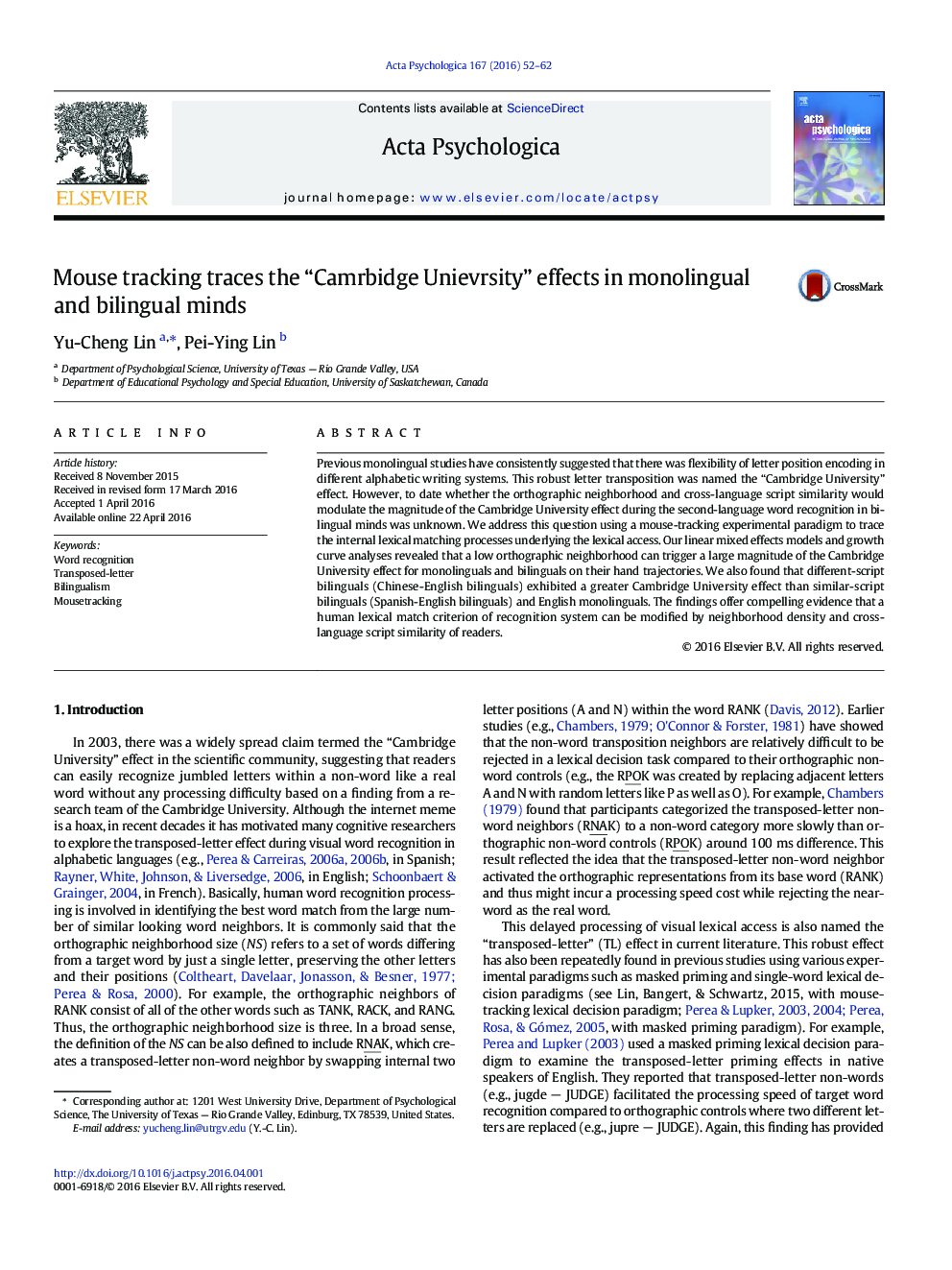| Article ID | Journal | Published Year | Pages | File Type |
|---|---|---|---|---|
| 919638 | Acta Psychologica | 2016 | 11 Pages |
•The transposed-letter non-words trigger a greater spatial and temporal lexical attraction towards the base words.•The orthographic neighborhood density influences the magnitude of the transposed-letter effects.•The cross-language script similarity modulates the magnitude of transposed-letter effects.
Previous monolingual studies have consistently suggested that there was flexibility of letter position encoding in different alphabetic writing systems. This robust letter transposition was named the “Cambridge University” effect. However, to date whether the orthographic neighborhood and cross-language script similarity would modulate the magnitude of the Cambridge University effect during the second-language word recognition in bilingual minds was unknown. We address this question using a mouse-tracking experimental paradigm to trace the internal lexical matching processes underlying the lexical access. Our linear mixed effects models and growth curve analyses revealed that a low orthographic neighborhood can trigger a large magnitude of the Cambridge University effect for monolinguals and bilinguals on their hand trajectories. We also found that different-script bilinguals (Chinese-English bilinguals) exhibited a greater Cambridge University effect than similar-script bilinguals (Spanish-English bilinguals) and English monolinguals. The findings offer compelling evidence that a human lexical match criterion of recognition system can be modified by neighborhood density and cross-language script similarity of readers.
